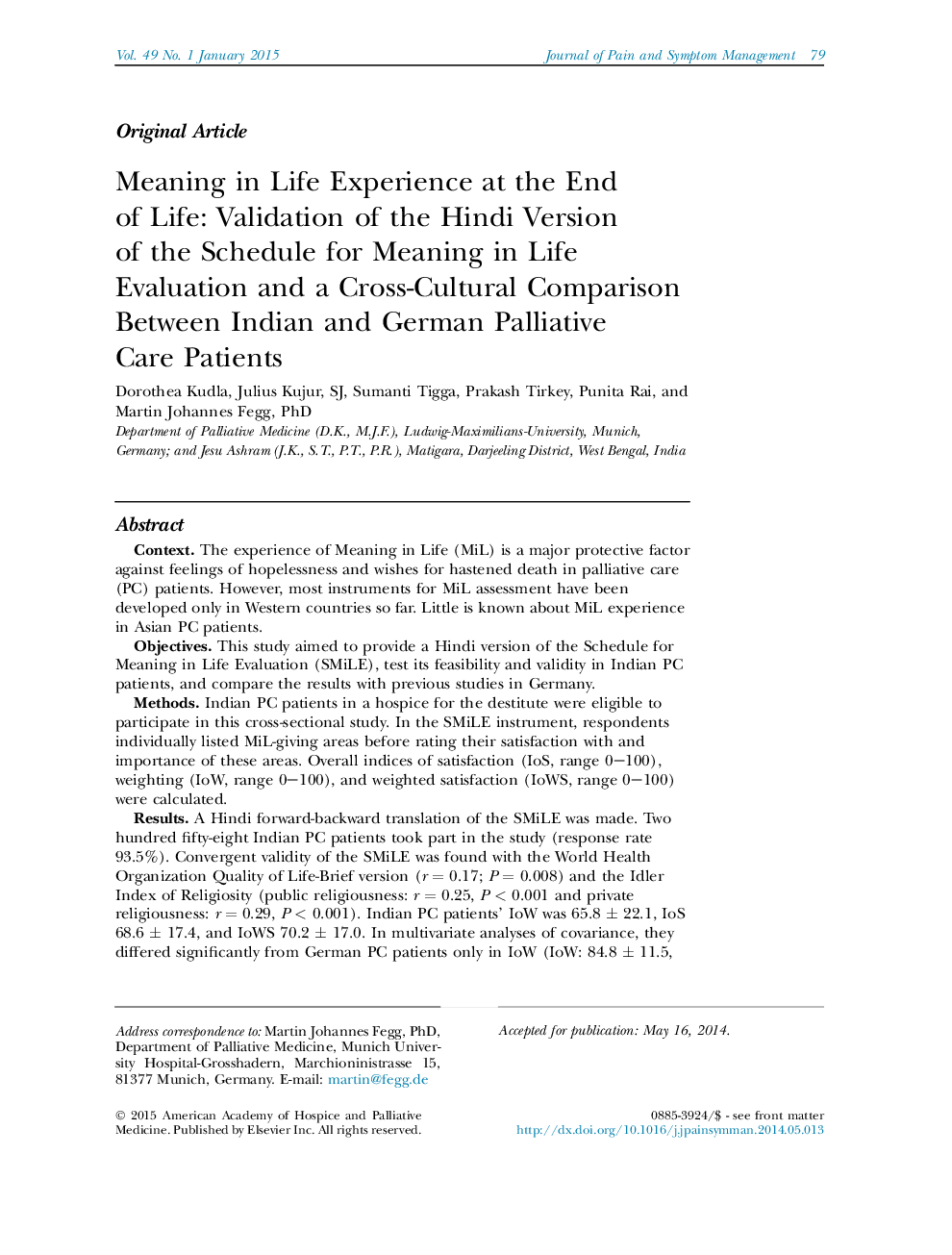| کد مقاله | کد نشریه | سال انتشار | مقاله انگلیسی | نسخه تمام متن |
|---|---|---|---|---|
| 5881353 | 1147793 | 2015 | 10 صفحه PDF | دانلود رایگان |
ContextThe experience of Meaning in Life (MiL) is a major protective factor against feelings of hopelessness and wishes for hastened death in palliative care (PC) patients. However, most instruments for MiL assessment have been developed only in Western countries so far. Little is known about MiL experience in Asian PC patients.ObjectivesThis study aimed to provide a Hindi version of the Schedule for Meaning in Life Evaluation (SMiLE), test its feasibility and validity in Indian PC patients, and compare the results with previous studies in Germany.MethodsIndian PC patients in a hospice for the destitute were eligible to participate in this cross-sectional study. In the SMiLE instrument, respondents individually listed MiL-giving areas before rating their satisfaction with and importance of these areas. Overall indices of satisfaction (IoS, range 0-100), weighting (IoW, range 0-100), and weighted satisfaction (IoWS, range 0-100) were calculated.ResultsA Hindi forward-backward translation of the SMiLE was made. Two hundred fifty-eight Indian PC patients took part in the study (response rate 93.5%). Convergent validity of the SMiLE was found with the World Health Organization Quality of Life-Brief version (r = 0.17; P = 0.008) and the Idler Index of Religiosity (public religiousness: r = 0.25, P < 0.001 and private religiousness: r = 0.29, P < 0.001). Indian PC patients' IoW was 65.8 ± 22.1, IoS 68.6 ± 17.4, and IoWS 70.2 ± 17.0. In multivariate analyses of covariance, they differed significantly from German PC patients only in IoW (IoW: 84.8 ± 11.5, P < 0.001; IoS: 70.2 ± 19.7; IoWS: 72.0 ± 19.4). Compared with Germans, Indians more often listed spirituality (P < 0.001) and social commitment (P < 0.001) and less often social relations (P = 0.008).ConclusionPreliminary results indicate good feasibility and validity of the Hindi version of the SMiLE. MiL experience also seems to be a coping resource for Indian PC patients.
Journal: Journal of Pain and Symptom Management - Volume 49, Issue 1, January 2015, Pages 79-88
